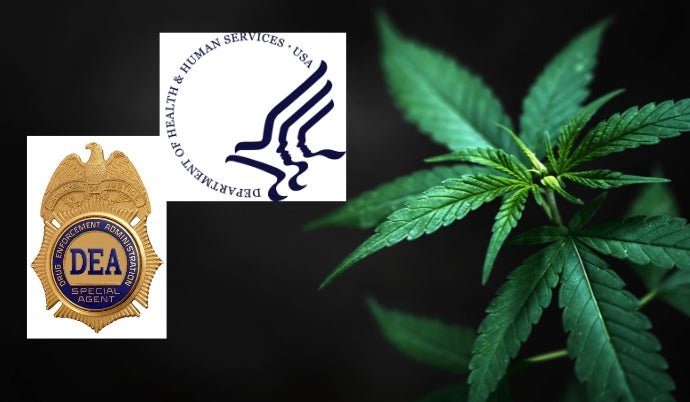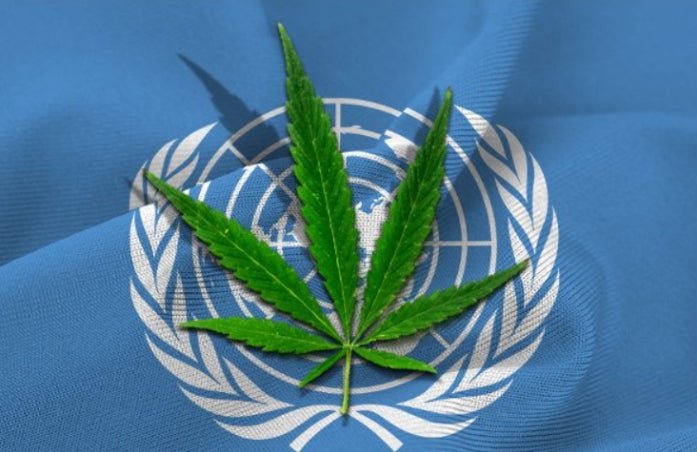Last week, interim director Charlene Briner unveiled the strategy for enacting a temporary method to inspect and test raw cannabis flower to ensure it does not violate current law.

The all-out attack on hemp-derived intoxicating products continues to rage across the United States. The latest state to take a more aggressive and punitive approach to “regulating” its hemp industry is Minnesota.
According to numerous local and national media outlets, officials at the newly created Office of Cannabis Management (OCM) announced plans last week to “stop the sale of cannabis flower that is illegal marijuana masquerading as legal hemp.”
This past May, Minnesota became the 23rd state to legalize adult-use cannabis. In doing so, Governor Walz (D) and the State Assembly also included language protecting the prosperous and already well-established hemp-derived products industry in the North Star State. However, OCM officials and several key state lawmakers are now backing a plan to rein in a few bad actors in the much-maligned and misunderstood market sector.
Charlene Briner, the interim director of the new Office of Cannabis Management, said last Thursday that she is working with other state agencies to develop a plan for inspecting and testing flower products sold in hemp shops to make sure they comply with current Minnesota law.
In a statement, Briner said that she would investigate the use of OCM inspectors and the Department of Agriculture to stop the illegal sale of specific high-THC items disguised as legal hemp flower offerings.
“OCM is evaluating how to leverage existing enforcement capacity at the Office of Medical Cannabis to act on OCM’s behalf and how we can develop capacity to test raw cannabis flower. We’ll be sharing more about those plans as we put them in place,” Briner said.
"OCM is evaluating how to leverage existing enforcement capacity at the Office of Medical Cannabis to act on OCM’s behalf and how we can develop capacity to test raw cannabis flower. We’ll be sharing more about those plans as we put them in place."
- Charlene Briner, Interim Director of the MN Office of Cannabis Management
The problem centers predominantly on the inability of inspectors to accurately and effectively distinguish legal hemp flower from its more powerfully intoxicating sibling, cannabis. The only difference between hemp and cannabis comes down to the concentration levels of delta-9 THC contained within each plant.
According to the 2018 Farm Bill, which legalized hemp and all of its downstream products and uses, hemp is any part of the cannabis sativa plant that contains less than 0.3% delta-9 THC. All other components are technically cannabis. However, to the naked eye, hemp and cannabis flower are practically identical.
As a result, a handful of retailers have been selling raw marijuana flower that may or may not exceed those technical legal limits. Inspectors have not taken those businesses to task or even attempted to test their suspicious products because the OCM has no authority over any unprocessed flower.
Former Office of Medical Cannabis director Chris Tholkes discussed the problematic loophole on the national Weed Wonks podcast last year. In that interview, Tholkes shared that many of her inspectors witnessed the sale of raw cannabis flower in stores whose owners claim it was legal hemp. However, those inspectors had strong suspicions to the contrary.
“We’re seeing lots of hemp flower — doing air quotes — out in the marketplace, and we don’t have the regulatory authority over that flower. We just hear everyplace we go into: ‘It’s hemp, it’s legal, Farm Bill.’ Unless we can see that the flower has an extracted product added to it, then it becomes our authority,” Tholkes said.
"We’re seeing lots of hemp flower — doing air quotes — out in the marketplace, and we don’t have the regulatory authority over that flower. We just hear everyplace we go into: ‘It’s hemp, it’s legal, Farm Bill.’ Unless we can see that the flower has an extracted product added to it, then it becomes our authority."
- Chris Tolkes, Former Director of the MN Office of Medical Cannabis
Briner met with state regulators and leaders of the associations representing county sheriffs and local police chiefs last week to discuss the gap and develop a methodology for addressing the problem.
With recreational marijuana now legal for adults over 21 in the state, it is difficult to determine just how much law enforcement officials will want to get involved with what amounts to decimal points and bureaucratic red tape. Likewise, once the OCM begins issuing licenses to retail dispensaries, those businesses will be able to sell the kinds of intoxicating marijuana flower that are currently illegal.
Unfortunately, the real “victims” in all of this are the vast majority of law-abiding and conscientious hemp business owners, who obey the law and adhere to the state’s regulations concerning hemp-derived intoxicating products. Briner acknowledged their frustration and asked for their patience as the OCM and other state agencies attempt to get the required agreements and testing capacity to monitor the items in question appropriately.
For hemp industry advocates and stakeholders, the scenario appears to be another attempt by corporate cannabis interests to spend a lot of taxpayer dollars and regulatory person-hours on a problem that won’t even exist a year from now.








































